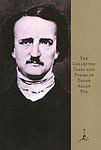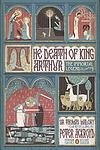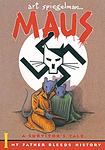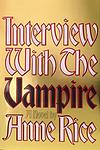The Greatest "Europe" Books of All Time
Click to learn how this list is calculated.
This list represents a comprehensive and trusted collection of the greatest books. Developed through a specialized algorithm, it brings together 284 'best of' book lists to form a definitive guide to the world's most acclaimed books. For those interested in how these books are chosen, additional details can be found on the rankings page.
Genres
The "Europe" category for books encompasses a wide range of literature that explores the history, culture, politics, and geography of the continent. It includes works of fiction, non-fiction, and memoirs that delve into the diverse and complex societies of Europe, from the ancient civilizations of Greece and Rome to the modern-day European Union. This category also covers books that examine the impact of European colonialism and imperialism on other parts of the world, as well as the continent's role in global affairs. Overall, the "Europe" category offers readers a rich and varied selection of books that illuminate the many facets of this fascinating and influential region.
Countries
Date Range
Reading Statistics
Click the button below to see how many of these books you've read!
Download
If you're interested in downloading this list as a CSV file for use in a spreadsheet application, you can easily do so by clicking the button below. Please note that to ensure a manageable file size and faster download, the CSV will include details for only the first 500 books.
Download-
1. The Portrait of a Lady by Henry James
This classic novel explores the life of a young, independent American woman who inherits a large amount of money and moves to Europe, where she falls into a manipulative and oppressive marriage. The story delves into themes of personal freedom, responsibility, and betrayal, as the protagonist navigates the complexities of high society, love, and the consequences of her choices.
-
2. The Picture of Dorian Gray by Oscar Wilde
The novel follows the life of a handsome young man who, after having his portrait painted, is upset to realize that the painting will remain beautiful while he ages. After expressing a wish that the painting would age instead of him, he is shocked to find that his wish comes true. As he indulges in a life of hedonism and immoral acts, his portrait becomes increasingly grotesque, reflecting the damage his actions have on his soul. The story serves as a cautionary tale about the dangers of vanity, selfishness, and the pursuit of pleasure without regard for consequences.
-
3. The Complete Tales and Poems of Edgar Allan Poe by Edgar Allan Poe
This collection brings together all of the author's most famous works, including poems, short stories, and novellas. Known for his macabre and gothic storytelling, the author's works are filled with themes of death, love lost, and human frailty. Notable inclusions are the haunting poem "The Raven," the chilling stories "The Tell-Tale Heart" and "The Fall of the House of Usher," and his only complete novel, "The Narrative of Arthur Gordon Pym."
-
4. Doctor Zhivago by Boris Pasternak
Set against the tumultuous backdrop of the Russian Revolution, the book follows the life of a physician and poet, Yuri Zhivago, as he navigates the political and social upheaval of the early 20th century. Torn between his love for two women, his wife Tonya and his passionate mistress Lara, Zhivago's personal struggles mirror the larger societal changes occurring around him. The novel explores themes of love, war, and the human spirit, offering a poignant and complex portrait of life during a time of revolutionary change.
-
5. Bleak House by Charles Dickens
"Bleak House" is a complex narrative that critiques the British judiciary system through a long-running legal case known as Jarndyce and Jarndyce. The story follows the lives of numerous characters, including the kind-hearted Esther Summerson, her friends Richard and Ada, and their guardian, Mr. Jarndyce, who are all caught in the web of a legal dispute over an inheritance. The novel is known for its detailed depiction of the legal system, its vivid characters, and its exploration of social issues of the time.
-
6. Gravity's Rainbow by Thomas Pynchon
Set during the end of World War II, the novel follows Tyrone Slothrop, a lieutenant in the U.S. Army, as he tries to uncover the truth behind a mysterious device, the "Schwarzgerät", that the Germans are using in their V-2 rockets. The narrative is complex and multi-layered, filled with a vast array of characters and subplots, all connected by various themes such as paranoia, technology, and the destructive nature of war. The book is known for its encyclopedic nature and its challenging, postmodernist style.
-
7. Decameron by Giovanni Boccaccio
"Decameron" is a collection of 100 stories told by a group of seven young women and three young men sheltering in a secluded villa just outside Florence to escape the Black Death, which was afflicting the city. The tales, which range from the erotic to the tragic, the hilarious to the instructional, are embedded in a rich framework narrative that provides a detailed portrait of the society of the Italian Renaissance.
-
8. Speak, Memory by Vladimir Nabokov
"Speak, Memory" is an autobiographical memoir that explores the author's life from his birth in 1899 to his emigration to the United States in 1940. The narrative details his privileged childhood in Russia, his experiences during the Russian Revolution, his time in Europe as an émigré, and his career as a writer and scholar. The book is noted for its intricate descriptions, its exploration of the nature of memory, and its intricate linguistic play.
-
9. Le Morte d'Arthur by Thomas Malory
This classic work is a compilation of stories and legends about the legendary King Arthur, his knights, and the Round Table. It tells of Arthur's rise to power, his quest for the Holy Grail, and his tragic downfall. The book, written in the 15th century, is considered one of the most influential pieces of Arthurian literature and has significantly shaped the modern perception of Arthur, Merlin, Guinevere, Lancelot, and other iconic characters.
-
10. The Decline and Fall of the Roman Empire by Edward Gibbon
This historical work provides a comprehensive perspective on the fall of the Roman Empire, examining its decline from the height of its power in the second century A.D. through the fall of Constantinople in 1453. The author meticulously chronicles the empire's deterioration due to a variety of factors, including moral decay, economic crisis, military incompetence, barbarian invasions, and internal power struggles, while also offering insightful commentary on the broader implications for Western civilization.
-
11. The Education of Henry Adams by Henry Adams
"The Education of Henry Adams" is an autobiographical account that explores the changes in society and politics during the 19th and 20th century from the perspective of an individual who is both a product and critic of that era. The narrative is structured around the author's self-perceived failure to understand or adapt to these changes, despite his privileged education and social status. The book is a reflection on the author's life, his attempts to make sense of the world around him, and his struggle to reconcile his traditional upbringing with the rapid advancements of the modern world.
-
12. Independent People by Halldor Laxness
"Independent People" is a novel set in rural Iceland, following the life of a stubborn sheep farmer who values his independence above all else. Despite facing numerous hardships, including poverty, harsh weather, and family strife, he refuses to accept help or compromise his self-reliance. The book explores themes of pride, the struggle for survival, and the human spirit's resilience in the face of adversity.
-
13. Death in Venice by Thomas Mann
"Death in Venice" is a novella that explores the life of Gustav von Aschenbach, a famous writer in his early fifties who embarks on a journey to Venice after experiencing a creative block. In Venice, he becomes obsessed with a beautiful Polish boy named Tadzio, whom he sees at the hotel where he is staying. Aschenbach's fascination with Tadzio becomes a metaphor for his own internal struggle with his repressed passions and his need for aesthetic beauty. The story culminates in Aschenbach's death as a cholera epidemic sweeps through Venice. His demise symbolizes the destructive power of his unfulfilled longing and his ultimate surrender to his repressed desires.
-
14. Maus by Art Spiegelman
This graphic novel tells the story of a Holocaust survivor, as narrated by his son. The unique use of animals to represent different nationalities and ethnic groups adds a distinctive layer to the narrative. The protagonist's father recounts his experiences as a Polish Jew during World War II, offering a poignant depiction of the horrors of the Holocaust. The narrative also explores the complex father-son relationship, revealing the impact of such traumatic historical events on subsequent generations.
-
15. The Radetzky March by Joseph Roth
"The Radetzky March" is a historical novel that explores the decline and fall of the Austro-Hungarian Empire through the experiences of the Trotta family, across three generations. The narrative begins with Lieutenant Trotta, who saves the life of the Emperor during the Battle of Solferino, and follows his descendants as they navigate the complexities of life in the empire. The novel delves into themes of duty, honor, and the inevitability of change, painting a vivid picture of a society in decline.
-
16. Collected Poems of T.S. Eliot by T. S. Eliot
This collection includes the works of a renowned 20th-century poet, featuring his most famous pieces such as "The Waste Land," "Four Quartets," and "The Love Song of J. Alfred Prufrock." The poet's works are known for their profound exploration of existential despair, disillusionment, and spiritual emptiness, often employing complex, fragmented structures and numerous allusions to mythology, religion, and contemporary culture. This compilation provides a comprehensive look at the poet's influential contribution to modernist literature.
-
17. The Second World War by Winston Churchill
This book provides a comprehensive overview of the Second World War from the perspective of one of its most influential leaders. It covers the entire span of the war, from its origins in the political and economic turmoil of the 1930s, to the major battles and strategic decisions that shaped its course, to its aftermath and impact on the world. The author's unique perspective and firsthand experience, combined with his eloquent and insightful writing, make this a definitive account of one of the most important events in modern history.
-
18. Interview with the Vampire by Anne Rice
The novel is a dark and atmospheric tale of a centuries-old vampire, Louis, who shares his life story with a young reporter. He recounts his transformation into a vampire by the charismatic and ruthless Lestat, their complex relationship, and their encounters with other supernatural beings. The narrative explores themes of immortality, loss, identity, and the human desire for love and companionship. The book is known for its rich detail and its philosophical and historical depth.
-
19. Six Characters in Search of an Author by Luigi Pirandello
In this metatheatrical play, six characters come to life and demand that a theater director tell their tragic story, which was left incomplete by their author. As the director and his actors interact with these characters, the boundaries between fiction and reality blur, leading to a philosophical exploration of the nature of human identity, the reliability of art, and the unreliability of perception. The characters' story, involving a complex web of familial relationships, adultery, and suicide, further complicates the narrative, challenging the audience's understanding of truth and illusion.
-
20. Night by Elie Wiesel
This book is a memoir of the author's experiences during the Holocaust, specifically in the Auschwitz and Buchenwald concentration camps. The narrative focuses on the relationship between a father and son under the most extreme circumstances, the loss of faith in God, humanity, and in each other, and the horrifying reality of the systematic genocide of six million Jews during World War II. The book is a poignant and stark examination of the depths of human evil and the enduring power of hope and survival.
-
21. The Myth of Sisyphus by Albert Camus
This book is a philosophical essay that explores the concept of absurdity, and how individuals should respond to life's inherent meaninglessness. It posits that life is essentially absurd due to the conflict between our desire for understanding and the chaotic, indifferent universe. The author argues that the only proper response to this absurdity is to live life to its fullest, embracing and rebelling against the absurdity, rather than resorting to suicide or turning to religion or philosophy for false comfort. The story of Sisyphus, condemned to eternally roll a boulder up a hill only for it to roll back down, is used as a metaphor for the human condition.
-
22. Women of Trachis by Sophocles
This ancient Greek tragedy follows the story of a woman who mistakenly kills her husband, a legendary hero, with a poisoned shirt. She had been given the shirt by a dying centaur who told her it would ensure her husband's loyalty. However, the centaur had actually been fatally wounded by the hero, and the shirt was soaked in the centaur's poisonous blood. The woman kills herself upon realizing her tragic mistake.
-
23. Embers by Sandor Marai
"Embers" is a novel about two old friends who reunite after being apart for 41 years. The story takes place in a secluded castle in the Carpathian Mountains, where the two men confront each other about a long-kept secret that has kept them apart. The narrative delves into themes of friendship, love, loyalty, and betrayal, while exploring the intricate dynamics of human relationships. The novel is a poignant examination of the nature of time and memory, and the ways in which they can shape and define our lives.
-
24. A Distant Mirror by Barbara Tuchman
"A Distant Mirror" is a historical narrative that vividly depicts the calamitous 14th century, a time marked by the Black Death, religious strife, and the Hundred Years War. The book follows the life of a French nobleman, offering a detailed account of his experiences and the broader social, political, and cultural transformations of the era. The author draws parallels between the 14th century and the 20th century, highlighting recurrent patterns in history such as warfare, pandemics, and societal unrest.
-
25. Mythology by Edith Hamilton
This book is a comprehensive guide to ancient Greek, Roman, and Norse mythologies, providing detailed accounts of various gods, goddesses, heroes, and other mythological creatures. It includes well-known stories like the Odyssey and the Iliad, along with lesser-known tales, and analyzes their significance in the cultures they originated from. The book also delves into the origins of these myths and their influence on later civilizations, offering readers a deep understanding of ancient cultures and their belief systems.
Reading Statistics
Click the button below to see how many of these books you've read!
Download
If you're interested in downloading this list as a CSV file for use in a spreadsheet application, you can easily do so by clicking the button below. Please note that to ensure a manageable file size and faster download, the CSV will include details for only the first 500 books.
Download























